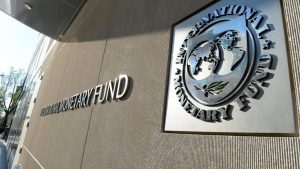Continuing transformative fiscal reforms

President-elect Ferdinand Marcos, Jr.’s Cabinet is still incomplete, with mere days remaining until his official inauguration. As of this writing, notable vacancies include Health and Energy, while Marcos has himself taken up the challenge of being Agriculture Secretary. Despite these pending appointments, one must concede that Marcos has generally allayed the concerns and uncertainty over his economic team. The incoming team is a mix of technocrats mostly with track records from previous administrations: Bangko Sentral ng Pilipinas (BSP) Governor Felipe Medalla, Economic Planning Secretary Arsenio Balisacan, Budget Secretary Amenah Pangandaman, and the primus inter pares in the team, Finance Secretary Ben Diokno.
The success of any administration will depend heavily on the team of leaders and technocrats he surrounds himself with. Even while one may rightly criticize outgoing President Rodrigo Duterte’s record on human rights and rule of law, one cannot deny that crucial economic reforms were pushed and enacted by his economic team. Marcos’ election is arguably a reflection of our electorate’s collective desire to continue the agenda of the outgoing administration. And while Marcos was elected with a significant majoritarian mandate and will be enjoying the gains from these reforms, he will be inheriting a vastly different economic situation than what his predecessor faced upon entering office.
Duterte’s economic team demonstrated the political capital and technical soundness to shepherd the passage of TRAIN (Tax Reform for Acceleration and Inclusion) and health taxes even without a fiscal crisis, as well as Corporate Recovery and Tax Incentives for Enterprises (CREATE) as part of the response to the COVID-induced economic recession. Marcos, on the other hand, must deal with a persistent pandemic, a tightening fiscal situation, and a hostile global environment characterized by high inflation and economic slowdown.
The aforementioned reforms under the Duterte administration created the conditions for sustained growth, but then came the pandemic, and the economy tanked (-8.6% of GDP in 2021). The said reforms still provided some cushion, but the high government deficit precipitated by the pandemic has given rise to significantly higher debt — P3.2 trillion above pre-pandemic levels with a resulting 60.4% debt-to-GDP ratio as of 2021.
Given the current debt situation, the government will need to raise P249 billion in incremental revenues every year for 10 years to return to the previous debt ratio. This could be achieved by vastly cutting spending on social services or by continuing to finance debt with additional borrowing. However, neither approach will give us the space to continue productive spending, to provide buffers to respond to economic shocks, and to ultimately out-grow the pandemic-induced debt and hit our developmental targets. Thus, Marcos must pursue strategic fiscal reforms in the same vein that Duterte did; he must pursue fiscal consolidation and resource mobilization.
The outgoing Department of Finance (DoF) has provided a blueprint for such a fiscal consolidation measure, which is expected to raise P374.6 billion in incremental revenues every year. The measure is a combination of the remaining reforms from the Comprehensive Tax Reform Program (CTRP), critical health taxes, several excise taxes with a sumptuary purpose, value-added tax (VAT) reforms, and further efforts to improve tax administration.
Package 1 of the DoF’s proposed fiscal consolidation includes the yet-unpassed packages on Passive Income and Financial Intermediary Taxation and Real Property Valuation and Assessment Reform of CTRP; continuing VAT reforms; reforms to the Motor Vehicle User’s Charge; and tax reforms on mining, gaming, and luxury and non-essential goods. These all fit the mold of the CTRP.
Package 1 also includes a deferment of the second tranche of the Personal Income Tax (PIT) schedule of TRAIN. The first tranche of PIT reforms in TRAIN has already provided immediate tax relief for the middle class, and its proposed deferment from 2023 to likely more favorable fiscal conditions in 2026 will provide annual incremental revenues of P97.7 billion. Also included in Package 1 is the introduction of value-added tax on online and digital services, which could raise P13.2 billion in annual incremental revenues. With all these measures included, Package 1 is expected to generate P247.8 billion.
Past sin tax reforms have demonstrably shown that excise taxes designed to modify consumption behaviors can significantly improve health outcomes while generating much-needed revenue for the government to spend on health and other social services. Thus Package 2 includes continuing health taxes on alcohol, tobacco, e-cigarettes, sugar-sweetened beverages, and additionally, non-nutritious food, which amount to P91.4 billion in annual incremental revenue. Package 2 also includes further reforms on petroleum and coal taxes, which, despite the long-term economic and environmental benefits, will likely be more difficult to pass due to the ongoing inflation episode.
Within a month’s time, incoming Finance Secretary Diokno plans to unveil the Marcos administration’s full fiscal program which will hopefully align with these fiscal consolidation measures. Diokno has in the past been a strong advocate of improving tax administration and will be instrumental in introducing further improvements and implementing the tax administration reforms enacted in the Comprehensive Tax Reform Package; sustaining the digitalization efforts of the Bureau of Internal Revenue and Bureau of Customs; and capturing transactions which have migrated to the digital economy.
In reckoning with economic history, we must consider not just how these reforms have contributed to growth, but, more significantly, how these reforms have contributed to the transformation of the economy and society in the long run. President Marcos Jr., through these reforms and together with his economic team, can continue to transform the fiscal institutions of our nation.
AJ Montesa heads the fiscal policy program of Action for Economic Reforms.




